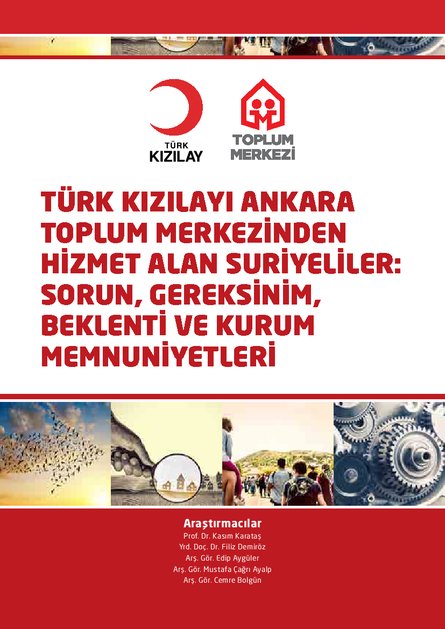
Human mobility and mass migrations are on the rise due to economic circumstances, wars, terrorism, other political reasons and social oppressions in various geographies of the world, as well as to globalisation. As a result of such population mobility, immigrants, asylum-seekers and refugees face many problems before, during and after migration process. Therefore, migration phenomenon brings along various psychosocial effects and adaptation problems depending on time of stay in destination country, characteristics of immigrants etc.; such character of migration requires an all-round examination).
It is important to adopt a multifaceted approach in dealing with the problem also for Syrian immigrants, who actually live in Turkey under temporary protection status. Consideration of multiple aspects of various problems and requirements of these individuals is critical in order to be able to prevent possible social conflicts and to conduct mutual harmony process in an attentive manner for both immigrants and local community. In the final analysis, migration has been present yesterday and is present today; it will be present as a controversial phenomenon in the future. In this regard, it is necessary to reinforce and invigorate communities so as to provide a strategic, social solidarity network in line with circumstances. During this reinforcement process, it is important to provide a platform that reconciles different interests in society, enabling different groups to enter into continuous interaction and negotiation.